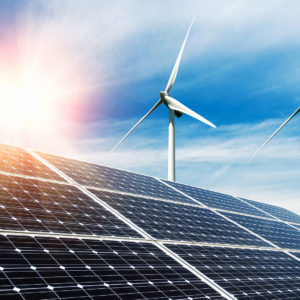The past weeks have revealed the best and worst things about our country.
On the one hand, Americans have displayed beautiful acts of charity, surprising feats of ingenuity and a willingness to band together in the face of the worldwide coronavirus pandemic. On the other, we’ve shown unsettling displays of political division, selfish opportunism and the exploitation of a crisis for partisan political enrichment.
Industry and the business community have been at the center of concerns in a post-outbreak world. For the most part, businesses have borne the brunt of the ongoing economic downturn as layoffs, reduced hours and store closings become more prevalent.
Sadly, in the midst of all of the distress, some politically connected industries are looking to Washington with their hands out, trying to capitalize on the crisis.
One industry of note that has quietly sought quick cash from Congress is the solar industry, which insists that a worldwide pandemic means it should receive extensions to tax credits that have long outlived their usefulness.
Two trade groups, the Solar Energy Industries Association (SEIA) and American Wind Energy Association (AWEA), sent a letter to Congress calling attention to the toll the virus has taken on their industry: “We are also faced with a reality we can’t ignore: the solar industry could lose up to half its workforce as a direct result of COVID-19,” the letter reads.
As Congress considers steps to stimulate the economy, the solar coalition asks that they advance policies that would specifically stabilize its industry. This includes a direct-pay option and an extension of the longstanding investment tax credit.
The coalition says these two policies would “create a runway that allows solar companies to retain employees in anticipation of future growth.” Additionally, they want additional clarity to safe harbor and commence construction rules to blunt the damage caused by COVID-19.
This move is particularly vile because the solar industrial complex is still taking outdated subsidies — and is now insisting it deserves special tax benefits. The for-profit environmental lobby has long been pushing for a continuation of measures, which were legislated to help it get underway, but are now no longer needed for solar to be a commercially viable energy source.
Solar energy enjoyed phenomenal growth between 2010 and 2016 — when annual installations rose from just 849 MW to 15,000 MW, nearly doubling the annual record. Congress’s initial tax credits for solar no doubt helped stimulate innovation, but the driving factors were technological improvements, market forces and an aggressive marketing push away from traditional energy sources.
In a fawning article, NPR argues that wind power also deserves special additional tax treatment, erroneously comparing it to the administration’s calls to fill the Strategic Petroleum Reserve to full capacity. Tangentially, it’s worth noting that “clean” wind energy demands millions of barrels of oil to function. So any stimulus that helps oil would also help wind.
Nowadays — global virus or not — renewables generate almost 20 percent of total U.S. electricity and more than one-third of new generating capacity. Retail solar systems have raised billions in private equity. In just a few years, without crony capitalism, solar and wind could out-compete natural gas.
The industry is mature enough that it doesn’t need the government to put a thumb on the scales for it, particularly not at a time when everyone needs a lift. While it appears the solar and wind tax credits are absent from the latest rendition of the stimulus package, these green giveaways could be folded into follow-on stimulus legislation.
Moreover, while the market is now developed enough that solar and wind can compete with traditional energy sources, those who benefit from “a runway that allows solar companies to retain employees in anticipation of future growth” are the ones who need it the least: the very rich.
Green energy tax breaks only go to the very wealthy — those who can afford a Tesla and turn up their noses at those who can’t.
For example, while homeowners might take advantage of tax incentives to improve both their properties and the environment, renters never will. Landlords have no incentive to upgrade facilities where renters pay for their own utilities, and no renter would ever make major investments for a property they don’t own.
Even the far-left media outlet Vox has called clean energy tax credits regressive.
Absolutely no industry has been untouched by the chilling effect the coronavirus has had on our economy.
The renewable energy industry’s insistence that they deserve more money is pretty repulsive in the midst of a national emergency where every day people have been left without a paycheck.

